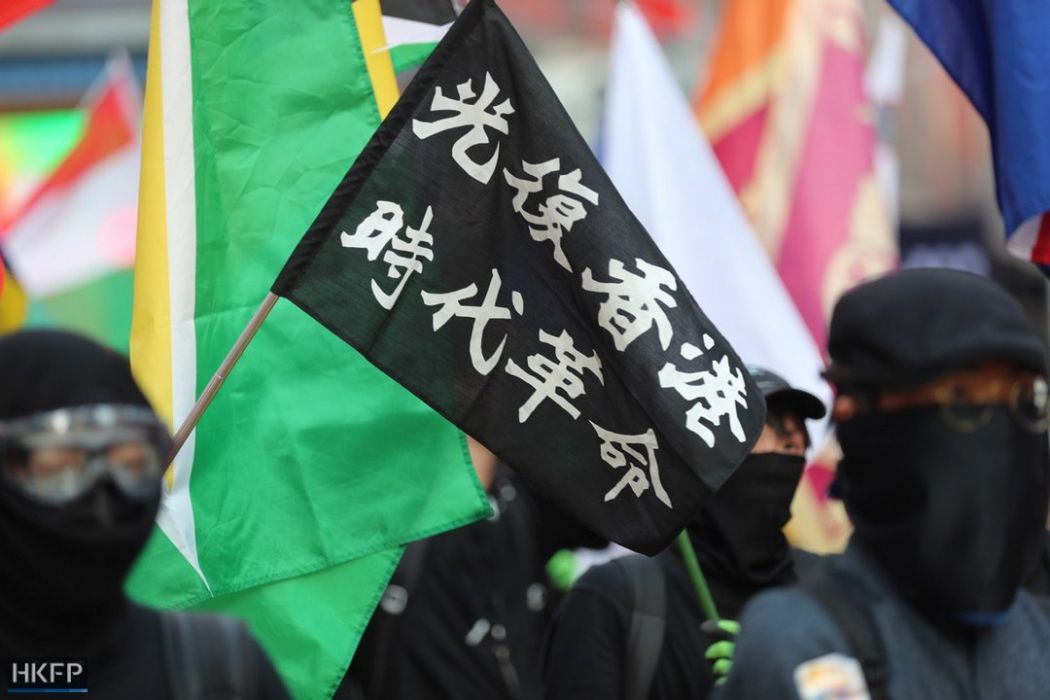By Joshua Lok
With a similar colonial past, territorial size and economic success, Singapore and Hong Kong serve as mutual yardsticks for progress and remain competitors at the forefront of the Asia-Pacific region.
In spite of this, sections of the majority Chinese population in Singapore have expressed a general disdain at the ongoing protests in Hong Kong, often taking to social media to voice their objections.

Their outlook was expressed at the upper echelons of government, with Singapore Prime Minister Lee Hsien Loong criticising the ‘Five Demands’ at the Forbes Global CEO Conference as an attempt to “humiliate and bring down the government” – a move which earned him praise on Weibo and an elevated status as a media darling in the eyes of Chinese news agencies.
Having lived and studied in Singapore for 15 years, I believe this is in part born out of decades of government policy in response to regional challenges unique to the island nation in the nascent stages of her independence, as well as the particular nature of Singapore’s relationship with China.
Back in 1965, Singapore had achieved independence from the UK and broken free from the Federation of Malaya. Prior to that, it had emerged from a period of riots and civil unrest which had manifested in the form of the Hock Lee Bus Riots in 1955 and the Race Riots of 1964.
Singapore academics Lily Kong and Brenda Yeoh say that – facing poverty, unsanitary living conditions and widespread unemployment – the government’s strategy in response was to promote ‘pragmatic values’ in order to foster ‘modernity, development and economic success, emphasising the utmost importance of a harmonious society as a foundation for progress and inculcating respect for the rule of law’.

Thus, under a highly successful economic model that reconciled free-market capitalism with a paternalistic brand of governance, the Pioneer Generation (aged 16 or over in 1965) and the following generation were a key force behind Singapore’s development in the latter half of the 20th century.
Reaping the rewards of rising wages, gainful employment and increasing affluence, many moved from squatters and kampong areas into high-rise apartments, becoming homeowners under the Housing Development Board (HDB) scheme.
This is textbook conservatism, a key tenet of which places an importance on the ownership of private property; having a stake in society automatically confers an interest in maintaining law and order in order to preserve the status quo – precisely what protesters are seeking to challenge in Hong Kong.
Another thing is to consider is the interplay between culture, language and foreign policy. Lee Kwan Yew is often credited with having the foresight to befriend China in the 1970s when it was only beginning to open up to the world, with his brand of strongman rule being admired by Chinese statesmen since Deng Xiaoping.

Borne out of the need to boost literacy and perhaps future economic opportunities rather than to align Singapore with China in international relations terms, Lee (who had a basic grasp of Mandarin at the time) made Singapore the only nation at the time to implement the use of Simplified Chinese in 1969, formally implementing the official People’s Republic of China script in Primary and Secondary schools by 1983.
Through the ‘Speak Mandarin Campaign’, Singaporean Chinese were encouraged to phase out dialects including Hokkien, Teochew and Cantonese from everyday use in schools in favour of Mandarin, which was officially recognised as a the mother tongue that all Chinese students (Peranakan Chinese being an exception) have to learn alongside English to this day, glossing over their unique cultural heritage from different regions in China.
In order to study the script, students are taught about Chinese mythology, folklore and history in order to understand the etymology of Chinese sayings, proverbs and anecdotes stemming from Taoist philosophy and Confucian values. They are constantly reminded to show humility and appreciation for their roots through a litany of idioms and poems.
Government policy has nurtured a dual identity among Singaporean Chinese, albeit to varying extents. They are not just Singaporeans, but bear a lingering sense of affinity and identification with other ethnic Chinese for whom Mandarin is a first language, steeped in their reverence for government, authority and their superiors and equipped to flourish in an increasingly Sinocentric world order.

However, some empathise with the disenfranchisement, unaffordable housing and other frustrations that have given rise to this year’s summer of discontent in Hong Kong. At the same time, they adopt a pragmatic view that escalating violence will prove counter-productive for all and make for a turbulent assimilation with the mainland in 2047.
Perhaps it is down to circumstance; having been able to cast aside their colonial shackles on their own terms, they are free to ridicule images of protesters parading the Union Jack and pleading for full British citizenship as a cry to be subjugated once again, wilfully ignoring the dark past of British imperialism in hopes of deliverance.
Growing up in a fully sovereign state that trades an intolerance for dissent and media censorship for economic prosperity and stability, they perceive Hong Kong protesters of all kinds as misguided youth, possessed by an anarchic will to disturb the peace, wreaking havoc on government institutions and on the very place they call home.
Joshua Lok is a freelance journalist based in Hong Kong.
